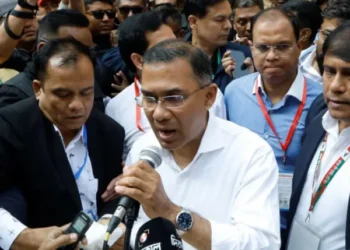In a significant yet controversial decision, the Judicial Commission of Pakistan (JCP)—the constitutional body responsible for the appointment of judges to superior courts—has once again rejected the proposal to make its internal proceedings public. This decision, made under the leadership of Chief Justice of Pakistan (CJP) Yahya Afridi, has sparked renewed debate around transparency, accountability, and democratic governance within Pakistan’s judiciary.
The proposal, which sought to introduce greater openness into the Commission’s decision-making process, was championed by Justice Syed Mansoor Ali Shah, a vocal advocate for transparency in judicial appointments. Despite strong arguments and a clear legal reference to Article 19A of the Constitution of Pakistan, the proposal was struck down by a majority vote—11 members voted against it, while only three supported it.
📌 Background: What Is the Judicial Commission of Pakistan?
The Judicial Commission of Pakistan was established under Article 175-A of the Constitution of Pakistan through the 18th Constitutional Amendment. It plays a vital role in recommending appointments of judges to the Supreme Court, High Courts, and the Federal Shariat Court.
The Commission comprises:
- The Chief Justice of Pakistan (Chairperson)
- Four senior judges of the Supreme Court
- A former Chief Justice or a former judge of the Supreme Court
- The Federal Law Minister
- The Attorney General of Pakistan
- A senior advocate nominated by the Pakistan Bar Council
- A representative of the opposition, usually from the National Assembly and Senate
It holds immense power in shaping Pakistan’s judicial landscape, making the debate over transparency all the more critical.
🗓️ Summary of the November 25, 2024 Meeting
The most recent JCP meeting, held on November 25, 2024, was convened primarily to approve the formation of a constitutional bench of nine judges for the Sindh High Court. The proposal was eventually passed by a majority vote of 11 to 4.
However, much of the meeting’s significance revolved around the renewed push by Justice Mansoor Ali Shah to make the proceedings of the Judicial Commission public, including the publication of meeting minutes.
Despite his reference to constitutional rights and precedent, the proposal failed to gain traction with most Commission members.
🧾 Justice Mansoor Ali Shah’s Push for Transparency
Reference to Article 19A
Justice Mansoor Ali Shah based his argument on Article 19A of the Constitution, which guarantees every citizen the right to access information in all matters of public importance. According to him, judicial appointments—which determine the integrity and effectiveness of Pakistan’s legal system—fall well within this definition.
He also cited the precedent set by former Chief Justice Qazi Faez Isa, who, during his tenure, introduced transparency reforms. Under his leadership, minutes of the three-member committee formed under the Supreme Court (Practice and Procedure) Act, 2023 were regularly made available to the public through the official Supreme Court website.
“Decisions about who sits in the highest courts of the land are of immense public interest,” Justice Shah emphasized during the meeting. “These are not private matters—they define how justice is served.”
🔐 Opposition to the Proposal
Legal Argument by Attorney General and CJP
Despite the push for openness, Attorney General of Pakistan (AGP) Mansoor Awan reminded the Commission that the JCP’s 2010 procedural rules mandate closed-door, in-camera sessions. Any deviation, he said, would require a formal amendment to the existing framework.
Chief Justice Yahya Afridi echoed this view, emphasizing that the current legal framework did not support the publication of meeting minutes or proceedings.
“The Commission must act within the scope of its legally defined mandate. Unless the rules are amended, we must respect procedural law,” stated CJP Afridi.
Law Minister’s Remarks
Federal Law Minister Azam Nazeer Tarar stressed that decisions of this magnitude should rely on the collective wisdom of Commission members rather than unilateral constitutional interpretations. While acknowledging the importance of transparency, he argued that institutional cohesion and legal consistency must not be compromised.
🗳️ Voting Outcome
After thorough deliberation, Chief Justice Afridi put the matter to a vote. The final tally was:
- 11 members opposed the proposal
- 3 members supported it (including Justice Mansoor Ali Shah and Justice Muneeb Akhtar)
- Sindh High Court Chief Justice Shafi Siddiqui was absent
As a result, the status quo of closed proceedings remains intact.
🚫 Absence of PTI Opposition Leaders
Notably, the Leader of the Opposition in the National Assembly Omar Ayub and Leader of the Opposition in the Senate Shibli Faraz, both members of the JCP, did not attend the meeting.
The Commission waited for two hours, but both individuals remained unreachable, with their phones switched off. Their absence further weakened the push for democratic accountability in the JCP’s proceedings.
Later, the PTI leadership nominated Barrister Gohar Ali Khan and Senator Barrister Syed Ali Zafar to replace them in the Commission. However, they did not participate in the crucial November 25 meeting.
✉️ Justice Shah’s Follow-up Letter: Warning of Public Distrust
Following the rejection of his proposal, Justice Mansoor Ali Shah penned a letter expressing concern over the continued lack of transparency in JCP operations. He warned that this ambiguity damages public trust and is incompatible with the judiciary’s role as a guardian of constitutional values.
In the letter, he stated:
“The Judicial Commission’s current opacity is neither healthy nor consistent with democratic accountability. Judicial appointments have profound implications, and shielding them from public scrutiny risks eroding confidence in our justice system.”
His letter has been widely circulated among legal circles, reigniting calls from civil society, bar councils, and legal experts for the JCP to modernize its procedures.
📢 Growing Public Demand for Judicial Transparency
Justice Shah is not alone in advocating for open proceedings. A number of civil society organizations, bar associations, and legal reform activists have long demanded that the JCP adopt modern governance standards.
Key Concerns from Civil Society:
- Lack of transparency in judicial nominations
- Absence of published criteria for judicial competence or merit
- Risk of favoritism, political interference, and elite capture
- Weak public understanding of how judges are selected
Legal experts argue that publishing JCP minutes and decisions would:
- Encourage merit-based appointments
- Build public confidence in judicial independence
- Deter undue influence or bias
🧭 What Needs to Change?
For the Judicial Commission to become more transparent, it would need to:
- Amend the 2010 Rules: Introduce provisions that allow partial or full public disclosure of JCP proceedings.
- Define Criteria for Publication: Establish what parts of meetings can be made public without compromising sensitive deliberations.
- Use Technology for Access: Utilize the Supreme Court’s website to publish minutes, decisions, and summaries regularly.
- Institutionalize Oversight: Create a formal review mechanism within the JCP to assess procedural fairness.
🧾 Conclusion: A Battle Between Tradition and Reform
The rejection of Justice Mansoor Ali Shah’s proposal once again reflects the tug-of-war between conservative judicial tradition and modern demands for openness and accountability. While the law currently mandates in-camera meetings, growing public scrutiny and international norms increasingly demand transparency from institutions of democratic importance.
The push to publicize the Judicial Commission of Pakistan’s proceedings may have failed—for now—but it is likely to return with even more force as public pressure mounts and legal reform continues to gain traction in Pakistan.

























